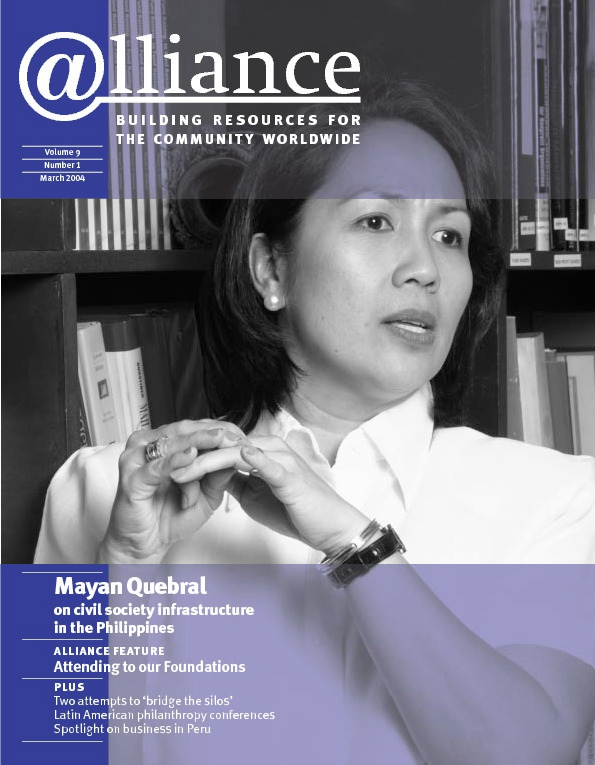In October, the Grantmakers East Group (GEG) held its tenth annual meeting in Kiev, Ukraine, on the theme of ‘Response to Change’. The event provided an opportunity to share and discuss the main findings of a review[1] undertaken to explore the impact of ten years of the GEG and to prepare its future in the light of recent changes in the CEE/NIS region.
What started in the early 1990s as a small, informal talking shop, where Western European and American programme officers could exchange views about the basics of grantmaking in Central and Eastern Europe, has now become an influential, though still informal, platform for international and indigenous grantmakers, who share the common objective of building civil society and developing philanthropy over an increasingly wide region.
The GEG meetings started as satellite events of the EFC Annual General Assembly and Conference, but in 2000 moved to venues in the CEE/NIS region. This played an important role in opening up the conference to grantmaking organizations from the region and in setting up national donors’ forums. Meanwhile, the geographical scope of the group was gradually expanding to include the South Caucasus and Central Asia.
The review
The GEG review highlighted three main trends that will influence the Group’s future development. First, with new EU member states now considered to be ‘graduates’ in terms of democracy, many US donors are in a phase of ‘consolidating support’ or ‘exiting’ from the region and moving eastwards. At the same time, new streams of finance from the EU are having a significant impact on the strategies and operations of CSOs. These changes in the source of funding imply shifts in priorities: decreasing funds for human rights, civic participation and regranting programmes and increasing funds for areas such as capital investment and social services.
Secondly, and by the same token, the focus of grantmaking is tending to switch from the regional approach favoured by foreign donors towards more country-specific approaches involving indigenous organizations.
There is thus an increased need to promote the value of grantmaking across the whole region. Although there may be some tradition of philanthropy, grantmaking is still pretty much an imported concept that has to gain understanding and trust from those who have resources – governments, corporations and wealthy individuals as well as the general public. The GEG should therefore consider what would be the most appropriate framework for reaching out to new indigenous grantmakers, particularly corporate donors, agencies that grant public funds and independent grantmakers.
Finally, the focus of grantmaking in the region has become more diverse, as reflected in subregional priorities and areas of interest. The pace and nature of change has also become more varied, mostly as a result of the integration of eight countries in the EU. Another group of countries are now in various stages of negotiation for accession, while others are still in the process of democratization. This highlights the need to create a space for subregional dialogue within the GEG, while allowing for sufficient diversity to create a better understanding of broad funding patterns in the region as a whole.
Continuing need for dialogue
In conclusion, the last ten years have seen the GEG successfully stimulate dialogue on development in the CEE/NIS in relation to civil society and the development of philanthropy, as well as the role of grantmakers. It has also enabled individual grantmaking initiatives to see the wider regional picture and to enter into partnerships and common programmes. With foreign donors narrowing their geographical focus or even withdrawing from the region, and the future of grantmaking mostly reliant on indigenous grantmakers, further support is needed for such dialogue.
The task for the GEG Steering Committee is to explore practical ways to meet these challenges while remaining responsive to change. The first opportunity to assess progress will be at the next annual meeting, in Belgrade on 19-20 October 2006.
1 The review of the GEG was conducted by Alina Porumb and Dana Pirtoc, Constient Ltd, Romania. A summary of the report, GEG in Times of Change: Ten years of the European Foundation Centre (EFC) Grantmakers East Group (GEG), can be obtained upon request from the GEG Secretariat from joanna@efc.be
Fabrice de Kerchove is Project Manager at the King Baudouin Foundation and Chair of the Steering Committee of the Grantmakers East Group. He can be contacted at dekerchove.f@kbs-frb.be


Comments (0)